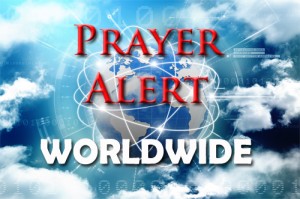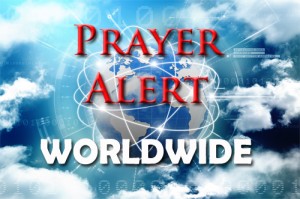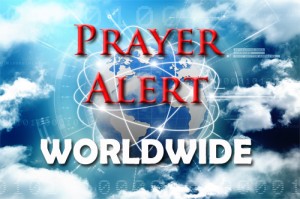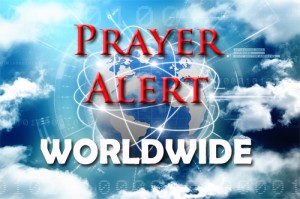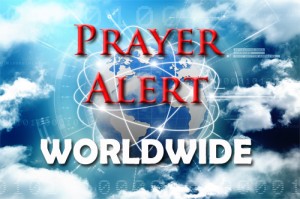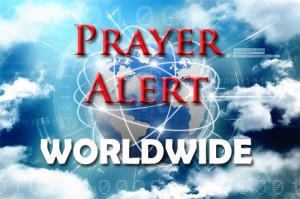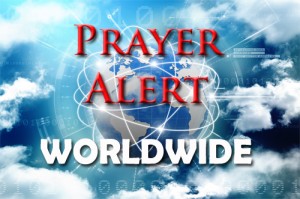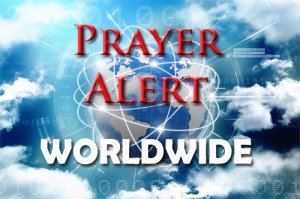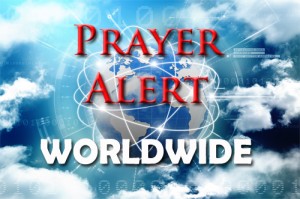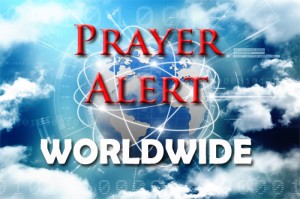Displaying items by tag: Africa
Comoros: Sunni Islam now the state religion
Sunni Islam was declared the state religion of Comoros in a referendum vote on constitutional reforms in the southeast African island. The amended constitution reads, ‘The state draws from this religion the principles and rules of Sunnite observance.’ Many believe this will have an impact on the country’s small Christian minority. Things are already very hard for indigenous Christians and this kind of specification is expected to make things even harder for them. The referendum was initiated by President Azali Assoumani and gives him the right to run for another presidential term. Previously power rotated between Comoros’ three islands every five years. In April, Assoumani suspended the constitutional court over ‘incompetence’ which observers saw as an attempt to diminish the rule of law in the country. Open Doors says, ‘In mosques and madrassas Muslim religious leaders teach anti-Christian sentiments and government officials obligate parents to send their children to madrassas.’
Zimbabwe: disputed presidential election result
The opposition party has rejected President Emmerson Mnangagwa's historic presidential election win after a poll marred by deadly violence and allegations of vote-rigging. On 2 August, Mnangagwa was declared the winner of the first election since the toppling of veteran leader Robert Mugabe, with a 6-point lead over Nelson Chamisa, head of the Movement for Democratic Change (MDC). Mnangagwa won 50.8 percent of the vote, the election commission said, and Chamisa 44%. The president tweeted, ‘Though we may have been divided at the polls, we are united in our dreams. This is a new beginning. Let us join hands in peace, unity, and love, and together build a new Zimbabwe for all!’ The chances of this happening appear slim, as the MDC has rejected the result as ‘fake’ and says it will challenge it in the courts. Six people have already died in clashes between protesters and the security forces which are patrolling the streets of Harare.
Algeria: church closures, UN steps in
The UN has urged the Algerian government to stop harassing its Christian minority, after several churches, Christian bookshops and a day-care centre for Christian children were closed down in recent months. Dozens of other churches also received notifications ordering them to close. The UNHRC is reviewing Algeria’s compliance with the International Covenant on Civil and Political Rights, and said it ‘remained concerned’ over the closures. It has called on Algeria’s government to ‘guarantee the full exercise of freedom of thought, conscience and religion to all’. It also said Algeria should ‘refrain from obstructing the religion of persons who do not observe the official religion, by destruction and closure of establishments or refusal to grant registration of religious movements’.
South Africa: taxi drivers’ turf war
Tensions between groups of taxi drivers vying for the same routes can spill into deadly violence in South Africa. Minibus taxis are the most popular form of transport and violence is common between rival groups vying for dominance on profitable routes. On 21 July gunmen opened fire on a minibus carrying members of a taxi drivers’ association, killing 11 people and critically wounding four others. They had attended a colleague’s funeral, and were returning to Johannesburg when the ambush occurred. In May South African media reported the deaths of ten people, in violence related to rivalries among minibus taxi drivers in Cape Town. In April four taxi drivers were shot dead in the war between two rival Johannesburg taxi associations. Those killings were sparked by the murder of one driver the previous week. Pray for common sense to prevail and end the tit-for-tat murders.
Nigeria: international community ignores Christian genocide
On 15 July the Christian Association of Nigeria reported that in the previous week 238 Christians were killed and more churches desecrated by Muslims. This puts the total number of Christians killed as 6,000+ since January. This is genocide. A joint communiqué from the Christian Association, representing different denominations, said, ‘There is no doubt that the sole purpose of these attacks is ethnic cleansing, land seizure and the forced expulsion of Christian natives from their land and ancestral heritage.’ The statement condemned recent attacks, where 2,000+ people had been brutally murdered and churches destroyed without any security intervention despite the various calls for help that were made. Taking into account that Christians constitute more than 50% of the Nigerian population, it is obvious that the objective of the Islamists is to create serious conflicts that, if not controlled, can lead to another civil war. Also, floods are killing many and ruining crops, raising fears of food shortages. See https://www.aljazeera.com/news/2018/07/nigeria-floods-worsen-food-shortages-180715120551293.html
Corruption in Africa
We recently had ‘African Anti-Corruption Day’ ,which recognised the progress made in the fight against corruption and the significant work still left to do. To highlight this point, the African Union (AU) designated 2018 as the year for ‘winning the fight against corruption’. The AU signed several treaties aimed at ensuring democracy, rule of law and good governance. But much more needs to be done. Corruption hampers development and the ability to bring people out of poverty. The continent ranks lowest amongst global regions in corruption perceptions, and the impact cannot be underestimated. 43% of Africans are living in poverty while over 50 billion US dollars’ worth of stolen assets flow out of Africa annually, money that could be invested in jobs and social services, where additional resources are needed most. Transparency International wrote an open letter to the AU highlighting seven areas where it could focus its efforts.
Horn of Africa: Persecution
Hostility, injustice and violence are a daily reality for millions of Christians across the Horn of Africa. In Somalia the militant Al-Shabaab group frequently kills suspected Christians on the spot, and believers keep their faith completely secret. In Eritrea the government views Christians as agents of the West and will arrest, harass and kill them with impunity. Hundreds are imprisoned in horrific conditions. Ethiopia is a Christian-majority country, but converts from Islam are rejected by their families and communities. In Kenya Al-Shabaab militants cross the border from Somalia. They killed dozens of Kenyan Christians last year. In Djibouti rumours of conversion are often enough for believers to lose their inheritance rights or custody of their children. Imagine living where, because you’re a Christian, you fail your studies, your neighbours beat you up, your home is destroyed, your family is put in prison, your father is killed. Would you lose heart, give up, change your faith? Please pray for those experiencing this daily.
Mozambique: New Islamic group kills villagers and displaces l,000’s
Attacks by a new Islamist militant group, Al-Sunna wa Jama’a, are being reported in Cabo Delgado province. Their first attacks targeted police stations. Since then more attacks and beheadings indicate a new jihadist movement in areas previously untroubled by Islamist extremism. Human Rights Watch reported 39 dead and 1,000+ displaced since May. On 5 June men attacked two villages with machetes and a small book in their hands reading loudly Arabic words from the book, before setting houses on fire. All the assailants had their faces covered and spoke Swahili. On 6 June, men with machetes and AK-47 assault rifles raided a neighbouring village, killing six and burning down 100+ homes. On 12 June, an elderly man was beheaded and another 100+ homes burned down when six men with machetes stormed Nathuko village. More. Also Missionary Heidi Baker appeals to Christians to pray for her work there
Burundi: 2/3 of family income is spent on food
Fifteen years of civil war, combined with extreme poverty, a fragile political process and recurrent climatic shocks, have impacted strongly on Burundi’s economy and nutrition. Only 28% of the population have a sufficient, nutritious diet all year round and 58% percent are chronically malnourished. Food security for the majority of Burundians has not improved in recent years, despite a gradual return to peace. With a population growth rate of nearly 3% per annum and agricultural production having declined by 24% since the civil war began, people are going hungry. Even during the harvest season, families spend up to two-thirds of their income on food. Burundi is one of the countries identified by both the Food and Agriculture Organization of the United Nations (FAO) and the World Food Programme (WFP) as being among the most affected by soaring food prices. After so many years of conflict, the capacity of the government to respond to this new challenge is limited.
Algeria: Christian persecution
Algerian Christians cannot openly practise their faith. 99% of the population are Muslim, and intolerance from Muslim relatives and neighbours is a major source of persecution. The state restricts freedom of religion through stringent laws and bureaucracy. Many ethnic Berbers are coming to Christ and Arabs are persecuting them. Laws regulate non-Muslim worship, ban conversion, and prohibit blasphemy. In recent years, several Christian churches with Muslim-background congregations have been ordered to close. Slimane Bouhafs, imprisoned for insulting Islam, was violently harassed by fellow prisoners for his faith. On 16 May a judge denied Pastor Nouredine Belabed's appeal against a sentence of a 100,000-dinar fine and payment of court fees plus a suspended sentence. Pray for the young people, who make up a large percentage of the population as well as the majority of Christians.
